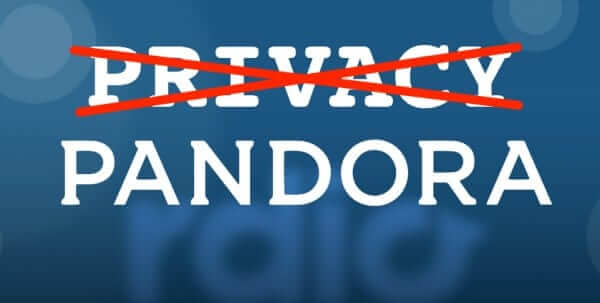
Peter Deacon had been a Pandora user for years, using Pandora’s free service. Then Pandora shared his private information, including his full name, his music preferences, and what he listened to, both on Facebook, and for anyone searching the Internet, Not cool, he thought, and sued for breach of privacy. But the Michigan high court ruled last week that because he doesn’t pay for the Pandora account, he is not a ‘customer’, and so not entitled to privacy protection.
The question was actually referred from the 9th Circuit Federal court back to the Michigan state supreme court, so that the Michigan court could make a determination as to whether Mr. Deacon qualified as a “customer” of Pandora, under the Michigan Preservation of Personal Privacy act (PPPA).
Pandora’s Facebook integration automatically disclosed Deacon’s full name, music-listening history, and musical preferences to other Facebook users.
This is because, under the PPA, §445.1712, disclosure of a customer’s “information concerning purchase, lease, rental, or borrowing of books or other written materials, sound recordings, or video recordings” is prohibited.
But, did Deacon, having a Pandora account, and using their services, but not paying them anything, qualify for the protections?
In short, the Michigan supreme court ruled, on that question, that Deacon did not qualify as a ‘customer’ because the Michigan PPPA specifically defines and protects a customer as someone who purchases, rents, or borrows the material, and because Deacon used Pandora’s free service, “there was no indication that Deacon chose that option.”
The Internet Patrol is completely free, and reader-supported. Your tips via CashApp, Venmo, or Paypal are appreciated! Receipts will come from ISIPP.
“Deacon was not a person who rented a sound recording because he did not give any payment for it” said the Court. “The verb “borrow” contemplates some promise to return the borrowed subject matter or its equivalent. Deacon was not a person who borrowed a sound recording because there was no promise, implied or expressed, that he would return the sound recording or its equivalent to Pandora. The music-streaming program offered by Pandora only involved the delivery of a sound recording to the listener. Therefore, Deacon was not a customer of Pandora under the PPPA because he neither rented nor borrowed a sound recording from Pandora.” (Emphasis added by us.)
Said one of Pandora’s attorneys, Jill Wheaton, of the ruling, in an article in the Detroit Free Press, “We’re pleased with it.”
You can read the [Page no longer available – we have linked to the archive.org version instead].
So what’s the next step? Well, Deacon et al. could appeal the decision, or not. Either way, the Michigan court will kick it back to the 9th Circuit – we’d love to see the 9th tear this ruling a new one.
The Internet Patrol is completely free, and reader-supported. Your tips via CashApp, Venmo, or Paypal are appreciated! Receipts will come from ISIPP.










Did pandora gain financially in any way while he accessed their services. Actually what do you call an individual who accesses a companies services offered. And what is the difference between a user and customer when at one time simultaneously one can be the other but the other is not one? I say if you have to register to access services you are a customer. Not necessarily a paying customer but a customer. At a grocery store when you walk in they have greeters to greet who? The customers. They are considered a customer the moment they enter. This ruling seems more politically driven than logically based. I cant imagine it will stand as it truly is and should be a no brainer. Look if i can access the services anonymously without any registration or identifiers then maybe. But even then if you end up suggesting the service paying lip service then its murky at best. Yea customer for sure.
He got it but didn’t keep it; how is that not borrowing?
Unbelievable!